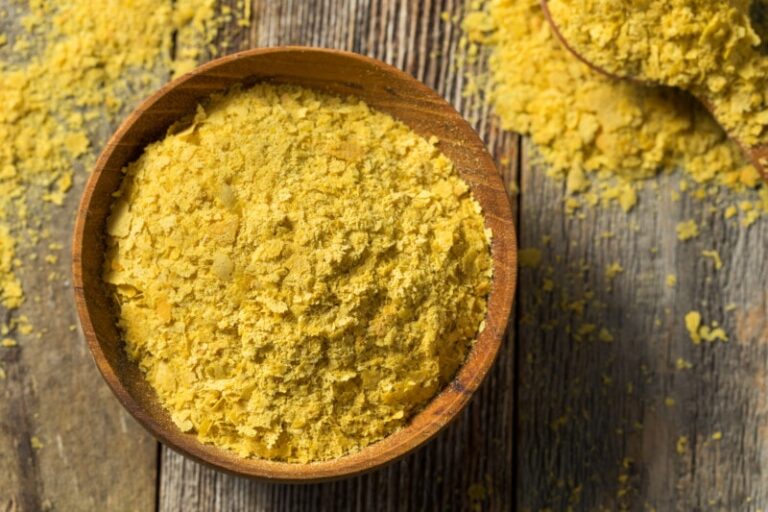Turmeric, a vibrant yellow spice derived from the Curcuma longa plant, has been widely praised for its numerous health benefits. From being a staple in traditional Indian cuisine to gaining recognition in Western wellness circles, turmeric is often touted as a superfood. However, it’s important to remember that like any substance, turmeric can have side effects. In this article, we will explore the 10 serious side effects of turmeric that everyone should be aware of, ensuring a well-rounded understanding of this popular spice.
Understanding Turmeric
Before diving into the side effects, it’s crucial to understand what turmeric is and how it works in the body. The primary active compound in turmeric is curcumin, which is responsible for many of its health benefits. Curcumin has anti-inflammatory, antioxidant, and antimicrobial properties, making turmeric beneficial for conditions like arthritis, heart disease, and certain cancers.
Despite these benefits, excessive or inappropriate consumption of turmeric can lead to adverse effects. It is essential to use turmeric judiciously, particularly in supplement form, where curcumin is concentrated.
1. Gastrointestinal Issues
One of the most common side effects associated with turmeric is gastrointestinal distress. This can manifest as:
- Nausea: Some people may experience feelings of nausea after consuming turmeric, especially in high doses.
- Diarrhea: Turmeric can act as a laxative, which may lead to diarrhea in sensitive individuals or those who consume it in excess.
- Indigestion: Turmeric can cause stomach upset or discomfort, particularly if taken without food.
These gastrointestinal issues can be especially pronounced when turmeric is consumed in supplement form or in large amounts, as opposed to its use as a spice in cooking.
2. Risk of Bleeding
Turmeric may have blood-thinning properties, which can pose serious risks, particularly for individuals taking anticoagulant medications. The following points should be considered:
- Increased Bleeding Risk: Turmeric can interfere with blood clotting, leading to increased bleeding during surgical procedures or in people with bleeding disorders.
- Medication Interactions: Those taking medications like warfarin, aspirin, or other blood thinners should consult their healthcare provider before using turmeric supplements or large quantities of turmeric in food.
If you are scheduled for surgery, it is advisable to discontinue turmeric at least two weeks prior to the procedure to minimize bleeding risks.
3. Hormonal Effects
Turmeric may also influence hormone levels in the body, which can lead to various complications:
- Estrogenic Activity: Some studies suggest that turmeric might mimic estrogen, potentially affecting hormone balance in both men and women. This can be particularly concerning for individuals with hormone-sensitive conditions, such as certain types of breast cancer.
- Menstrual Cycle Disruption: For women, high doses of turmeric can lead to changes in the menstrual cycle, including heavier periods or missed cycles altogether.
Consulting with a healthcare professional is essential for those with a history of hormonal issues or those undergoing hormone therapy.
4. Allergic Reactions
Though rare, allergic reactions to turmeric can occur and can be serious:
- Skin Reactions: Some individuals may develop rashes, hives, or other skin irritations after consuming turmeric.
- Anaphylaxis: In extreme cases, turmeric can trigger anaphylactic reactions, which are life-threatening and require immediate medical attention.
If you experience any signs of an allergic reaction after consuming turmeric, such as swelling of the face, difficulty breathing, or rapid heartbeat, seek emergency medical help.
5. Liver Damage
While turmeric is often thought to support liver health, excessive intake can have the opposite effect:
- Hepatotoxicity: High doses of turmeric supplements can lead to liver toxicity, potentially causing liver damage.
- Symptoms of Liver Damage: Signs of liver issues include jaundice (yellowing of the skin or eyes), dark urine, and abdominal pain.
Individuals with pre-existing liver conditions or those taking medications that affect the liver should use turmeric with caution and consult a healthcare professional.
6. Interference with Diabetes Medications
Turmeric has been shown to have hypoglycemic effects, which can be beneficial for managing diabetes but can also lead to complications:
- Blood Sugar Levels: Individuals taking diabetes medications may experience dangerously low blood sugar levels (hypoglycemia) when consuming turmeric in large amounts.
- Monitoring Required: Diabetic patients should regularly monitor their blood sugar levels if they include turmeric in their diet or take supplements, and consult with their healthcare provider to adjust their medication as necessary.
7. Interactions with Medications
Turmeric can interact with a variety of medications, potentially altering their effectiveness:
- Antidepressants: Some studies indicate that curcumin may affect the metabolism of certain antidepressants, potentially reducing their efficacy.
- Antihypertensive Drugs: Turmeric may enhance the effects of blood pressure-lowering medications, leading to hypotension (low blood pressure).
It’s crucial to inform your doctor about any turmeric supplements or high-dose turmeric you are consuming to avoid negative interactions with your current medications.
8. Kidney Stones
Turmeric contains oxalates, which can contribute to kidney stone formation in susceptible individuals:
- Oxalate Content: High oxalate levels can lead to the development of calcium oxalate stones, the most common type of kidney stones.
- Symptoms of Kidney Stones: Symptoms may include severe pain in the lower back or abdomen, blood in urine, and frequent urination.
Those with a history of kidney stones or kidney disease should consult with their healthcare provider before consuming high amounts of turmeric.
9. Effects on Fertility
Some studies suggest that excessive turmeric consumption may impact fertility:
- Male Fertility: High doses of turmeric may adversely affect sperm count and motility, potentially leading to fertility issues in men.
- Female Fertility: Turmeric may also disrupt ovulation in women, affecting reproductive health.
Couples trying to conceive should consider moderating their turmeric intake and consulting a healthcare professional for personalized advice.
10. Potential for Overdose
As with any supplement, there is a risk of overdose when taking turmeric, particularly in concentrated forms:
- Symptoms of Overdose: Symptoms may include nausea, diarrhea, dizziness, and even more severe complications like liver toxicity.
- Recommended Dosage: It’s essential to adhere to recommended dosages, whether consuming turmeric as a spice or in supplement form.
Before starting any new supplement regimen, including turmeric, consulting a healthcare professional is advisable, especially if you have underlying health conditions.
Conclusion
While turmeric has gained popularity for its numerous health benefits, it is crucial to be aware of the 10 serious side effects of turmeric. From gastrointestinal issues to the risk of bleeding and interactions with medications, understanding these potential risks can help you make informed choices about incorporating turmeric into your diet.
If you are considering using turmeric for its health benefits, moderation is key. Always consult with a healthcare professional, particularly if you have existing health concerns or are taking medications. By doing so, you can enjoy the benefits of turmeric while minimizing the risks associated with its consumption.
Remember, knowledge is power. Being aware of the side effects can help you enjoy turmeric safely and effectively in your wellness journey.













